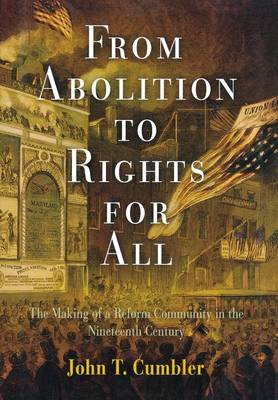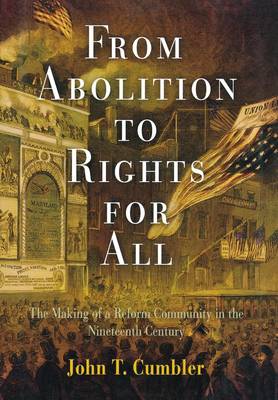
- Retrait gratuit dans votre magasin Club
- 7.000.000 titres dans notre catalogue
- Payer en toute sécurité
- Toujours un magasin près de chez vous
- Retrait gratuit dans votre magasin Club
- 7.000.0000 titres dans notre catalogue
- Payer en toute sécurité
- Toujours un magasin près de chez vous
From Abolition to Rights for All
The Making of a Reform Community in the Nineteenth Century
John T Cumbler
Livre relié | Anglais
86,45 €
+ 172 points
Description
From Abolition to Rights for All The Making of a Reform Community in the Nineteenth Century John T. Cumbler "This study demonstrates the breadth and continuity of nineteenth-century reform in the U.S., all too easily obscured by the cataclysm of civil war."--Choice "A fine book that should be high on the reading list of anyone interested in American social movements."--Journal of Social History The Civil War was not the end, as is often thought, of reformist activism among abolitionists. After emancipation was achieved, they broadened their struggle to pursue equal rights for women, state medicine, workers' rights, fair wages, immigrants' rights, care of the poor, and a right to decent housing and a healthy environment. Focusing on the work of a key group of activists from 1835 to the dawn of the twentieth century, From Abolition to Rights for All investigates how reformers, linked together and radicalized by their shared experiences in the abolitionist struggle, articulated a core natural rights ideology and molded it into a rationale for successive reform movements. The book follows the abolitionists' struggles and successes in organizing a social movement. For a time after the Civil War these reformers occupied major positions of power, only to be rebuffed in the later years of the nineteenth century as the larger society rejected their inclusive understanding of natural rights. The narrative of perseverance among this small group would be a continuing source of inspiration for reform. The pattern they established--local organization, expansive vision, and eventual challenge by powerful business interests and individuals--would be mirrored shortly thereafter by Progressives. John T. Cumbler is Professor of History at the University of Louisville and is the author of several books, including Reasonable Use: The People, the Environment, and the State, New England 1790-1930. 2007 256 pages 6 x 9 ISBN 978-0-8122-4026-9 Cloth $49.95s £32.50 ISBN 978-0-8122-0382-0 Ebook $49.95s £32.50 World Rights American History
Spécifications
Parties prenantes
- Auteur(s) :
- Editeur:
Contenu
- Nombre de pages :
- 256
- Langue:
- Anglais
Caractéristiques
- EAN:
- 9780812240269
- Date de parution :
- 26-10-07
- Format:
- Livre relié
- Format numérique:
- Genaaid
- Dimensions :
- 155 mm x 231 mm
- Poids :
- 521 g

Les avis
Nous publions uniquement les avis qui respectent les conditions requises. Consultez nos conditions pour les avis.






